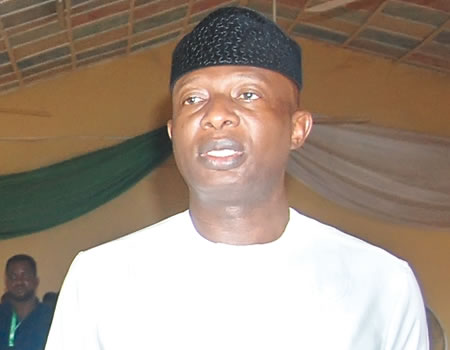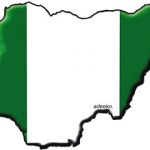What will Nigeria as a whole benefit from the kind of training being done today?
Our benefits are enormous but I would want to categorise them into three: social, economic and environmental. Social in the sense that the participation of our stakeholders would be eventually justified by the output. There are so many things about biodiversity or in the wild or the bush in layman’s language, that are not known. As I told somebody one day, I was privileged to grow up with my grand parents and I remember one day in the 70s when somebody was crying of headache. My grandmother plucked some leaves and mixed them with four cubes of sugar and washed the person’s head, saying he would never suffer headache again in his life. I was careless because I was not in this field and did not bother to find out the leaves used. She deliberately asked me to pluck it but I did not pay attention. So, there are still a lot in the wild that we have not collected and there are some collected by other stakeholders that are not known either to FRIN or the outside world. What we are saying that as many have collections should bring them so that Nigeria can take credit for it. If you keep it away from us, another country could discover it in Benin, in Ghana or even in the UK and it will be credited to them.
Then, there is environmental benefit in the sense that this training will also enhance our biodiversity index, and economic benefit because some people can begin to earn a living when analysis of such plants is done and we know the potentials they have to affect human life or our earth life. So this is why it is very important to the country and if those who have left FRIN had not collected the 125,000 collections, this biodiversity training won’t be taking place in Nigeria, not to talk of FRIN. We expect universities to turn in what they have and probably in the process of time, we will be able to rank the university that has the highest or which stakeholder is next to FRIN that we would say is a major collaborator. But if you keep what you have thinking it is not known—there is nothing hidden again in the world now. Just last week, the elephant tusk and pangolin material was collected from people, so how much of these do you know has been taken out and is already in a foreign land’s collection and they earning credit from it?We just constituted a team to go to Cross River which is the biodiversity hub of the country. We want to surpass the 125, 000 mark and see how fast we can reach 200,000.
For research institutions, we know that funding is generally a problem. What have you found on this job with respect to that?
Funding is a constant problem in the equations of life and so the same thing applies to FRIN. But my theory is that if you are a manager, if things are easy(in the place you are managing), you won’t be sent there. Without funding, people still want to ask what innovations you can bring in to get around your problem and solve it. You have to design your success plan yourself. If it would cost you your salary, at least when the goal is achieved, somebody somewhere will realise that oh, this person has carved a niche for himself. Nobody is waiting for you: whether there is fund or not, you are operating in the global terrain and you must struggle to keep pace with your contemporaries in the world. Now people are saying FRIN this FRIN that: it is because FRIN is struggling to keep pace. Once you are behind or stagnan—as they say, stagnant water stinks. But when you are dynamic, one way or the other, you will be refreshed along your path. And I think that’s just the theory my team has embraced; it is not about me. The team has resolved that irrespective of the circumstances in which we find ourselves, we must just save this institution for the future of those who are coming behind. Otherwise, we would have no story to tell.
Some of the participants in this trainingare fresh graduates. Is enough effort being made to take forestry research to our schools, such that students don’t have to graduatebefore acquiring the requisite knowledge?
The forestry schools that we have in Nigeria are an arm of FRIN. FRIN has a three-pronged mandate: our first mandate is to conduct research and the second mandate is to disseminate the findings to the end users, mostly the rural dwellers or farmers. But after doing that, how do you sustain whatever knowledge they have gained from you? That’s what brought about the college: to train the middle level manpower who will be beyond our reach but who will be able to go back to those we have disseminated information to and say “the information that you were given is to do A before B and not B before A.
“The colleges are strategically located: the one in Kaduna is to cover up to Sokoto while the one in Jos is to cover up to Maiduguri. The one in Ibadan is to cover the entire South-West, South South and South-East and that is why when you go into the annals of those schools, you would see that even people from the interior of Brass, Port Harcourt had schooled here, in the 40s, in the 50s, in the 60s, 70s and up till now. The one in Ibusa is specifically designed to train the entire country in wildlife management.
But beyond that, we also collaborate with a lot of universities and if you check our record here, there is no year we don’t have up to 1,000 people, whether undergraduate or postgraduate students of Nigerian universities from Sokoto, Rivers or Ogun State that come here to do internship of six months, moving from one department to another to have an understanding of those things they were taught in class. But that was in the past. If they come this year, we have scaled up because by the end of this month or next month, the FRIN zoo that will be the biggest zoo in Oyo State will have been established and commenced activities, so that if somebody had been hearing of crocodiles, he/she can come and see crocodiles live, feeding. If you’ve been hearing about pangolin, you come here and see what it is. But what we are doing now is on the flora, which has to do with the plants. We are saying that there are so many plants that are here but the world is not aware of how they look, what they are and what they can be used for. The ones we have collected before are 125,000 but we are still saying that beyond that, in the natural, we still have a lot that has not been collected. Part of these has probably been collected by one NGO or institution. That is why Dr. Ugbagu is gathering stakeholders to know what has been collected, so that if you add it to what FRIN has, that would be the hub for Nigeria. If those stakeholders now realise that their efforts are not in vain, they would go back to their immediate environments and do more and keep updating us on additions and these go into the international websites. And that would earn Nigeria credit.
About two weeks ago, I traveled to Iwara in Osun Statewhere we found two iginla (okoubaka). You would be shocked that even with the time we spent in that place, an hour or two, we couldn’t find its leaves.That tells you why the Yoruba say: “Ti Sango ba pa araba, to ba fa iroko ya, bi ti igi nla ko” (If Sango kills araba tree and uproots the iroko tree, he dare not try that with igi nla.) Any tree or plant life that touches it dies instantly.
Why is that so?
Because of the mystery sorrounding it. People practically worship it.






